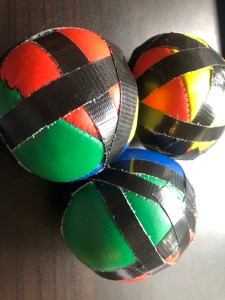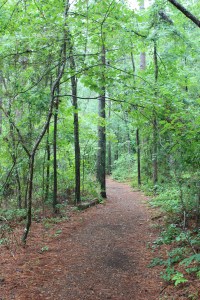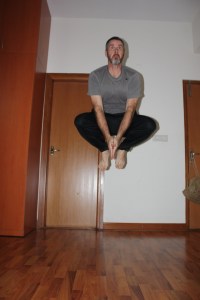Beginning my studies, the first step pleas'd me so much,
The mere fact, consciousness -- these forms -- the power of motion,
The least insect or animal -- the senses -- eyesight -- love;
The first step, I say, aw'd me and pleas'd me so much,
I have hardly gone, and hardly wish'd to go, any further,
But stop and loiter all the time, to sing it in ecstatic songs.
Tag Archives: learning
BOOKS: “Play” by Stuart Brown
 Play: How It Shapes the Brain, Opens the Imagination, and Invigorates the Soul by Stuart M. Brown Jr.
Play: How It Shapes the Brain, Opens the Imagination, and Invigorates the Soul by Stuart M. Brown Jr.My rating: 4 of 5 stars
Amazon.in Page
Why does biology encourage play? Why does it stop encouraging play at some point? Should play end, or should one maintain a dedication to play throughout life? These are principal questions addressed by this book.
Brown explores the advantages of leading a playful life, and he doesn’t restrict himself to childhood play. In fact, the book doesn’t restrict itself entirely to human play, but also presents insights derived from the study of other playful species. One of the most profound lessons from the book comes from a story about a sled dog that has repeated playful interactions with a polar bear — a hungry polar bear, at that.
The book is presented more like an essay or a collection of essays than the usual popular science or pop psychology book. That is to say, it is not annotated and lacks a bibliography. The author sites the occasional book or study in the text, but it’s in the manner one would see in journalism or essays. This approach has its advantages, but the flipside of those advantages are the disadvantages. On the positive side, the author is able to communicate more freely, including the ability to discuss more speculative possibilities than one would expect from scientific reporting (with its usual “just the facts” approach.) Of course, the extensive speculation will be frustrating to readers who want to know what evidence has been produced for the proposed benefits. Furthermore, it often feels like the speculation in question is of the “when you’re a hammer every problem is a nail” nature — i.e. when one is a play researcher, one may be inclined to see play as a panacea for all the ills facing humanity (it surely is for some, but probably not all.) [To be fair, the book is almost fifteen years old, and I suspect it was / is probably harder than pulling teeth to get academic funding for play research outside of early childhood development, and so part of what the book was probably trying to do was build enthusiasm for supporting this kind of research, which necessitated talking about possibilities that were outside the known.]
The book does have a chapter on “the dark side of play.” It deals with compulsive behaviors like gambling and video game playing addiction (i.e. not people who like playing video games once in a while, but those who go 48 hours without sleep and who live in cave-like darkness to limit screen glare.) Much of the chapter argues that, while those problems are real and of concern, the activities aren’t play, not as per the definition presented early in the book.
This book does make a sound case for a number of benefits of play and for not abandoning play in one’s youth. If you’re interested in how play can help one to cope in a world of uncertainty, to keep one’s mind and body healthy, and to maintain or grow one’s capacity for imagination, this book is well worth reading.
View all my reviews
The Circle of Play [Lyric Poem]
Sometime not too distant,
There will come a day
When you will return to
A frequent state of play.
When that day comes around,
You'll have lost all concern
For the adults' belief that
Frivolity must be spurned.
You'll take to tossing balls
And climbing up the walls,
Just like you used to do
When you were one or two --
Before that human zoo
Got its hooks in you.
PROMPT: Teacher
By the measure of having taught still useful lessons about HOW to think (those who taught me WHAT to think are largely forgotten along with their lessons,) that would be a tie between my 11th grade Psychology teacher and an undergrad Religious Studies professor. The former, among other ideas, first exposed me to what I would come to believe is the most important lesson of human existence under his label of the “gestalt of expectations.” [I’ve never heard anyone else refer to it as such, but the lesson was sound and I would latter find it in philosophies from Buddhism to Stoicism.] The latter teacher, among other ideas, exposed me to two common opposing modes of fallacious thinking, what he called “the outhouse fallacy” and “the first-est is best-est fallacy” (he was a folksy, if erudite, professor.)
In terms of personal growth and development, generally speaking, there are numerous teachers of martial arts, yoga, and other mind-body practices that are incomparable and thus unrankable. Not to mention, a sound argument can made for the repugnantly unhumble statement that I am my most influential (and most important) teacher. (I state this claim not as though I am unique, but as one that could apply to anyone.)
PROMPT: Learned
Heavy Indian Club movement patterns and the core tenets of Perennial Philosophy.
PROMPT: Skills
I’ve been learning to juggle. It’s an excellent skill because you have to fail a million times before you can be successful, and you can’t partially fail or fail in a controlled fashion. It’s kind of all or nothing. So, it teaches persistence and to be less prone to becoming demoralized. It also teaches one a lot about how one’s mind works at the speed of instinct.

PROMPT: Out of Place
I feel out of place in social settings pretty much everywhere and always. This, perhaps surprisingly, has made me an excellent and avid traveler because I feel the same level of out of place among a group of people who speak a different native language, practice an unfamiliar religion, and who have different skin and hair characteristics as I would with a group of people who share a common ancestry, went to the same school, and grew up with the same cultural trappings. This creates an internal pressure to go to unfamiliar places, because familiar places offer the same anxiety with none of the learning opportunities, whereas the unfamiliar always offers new lessons.
PROMPT: Skills
There are so many. Life is short and there’s so much to learn. There are swim strokes (and related skills) I’d like to pick up, including drownproofing. I never learned to drive a proper motorcycle. Archery would be nifty.
PROMPT: Curiosity
What are you curious about?
Everything. But I have learned to be less obsessed with the grand metaphysical questions for which no one has any defensible answers – just rank speculation. Socrates convinced me it’s not worth worrying about abstractions while one is still struggling with fundamental questions of how to be human.
PROMPT: Teachers
What makes a teacher great?
If a student (or students) voluntarily and enthusiastically come to learn from an individual, that individual is a great teacher.
The emphasis is on “to learn” because some people confuse great charisma with great pedagogy, but such people go to the charismatic person to take comfort from being in that person’s presence, not to learn — despite whatever truisms or clever-sounding parallel grammatical structures the charismatic individual might spout.
So, if one would go to an individual seeking knowledge, knowing the experience will be challenging and not merely comforting, one has found a great teacher.



